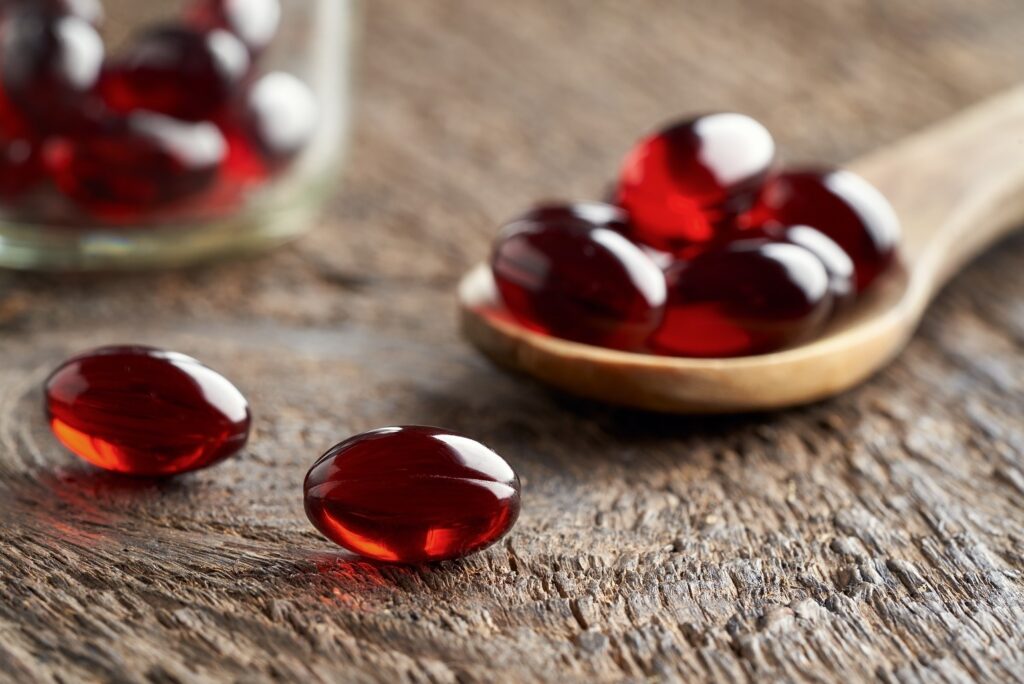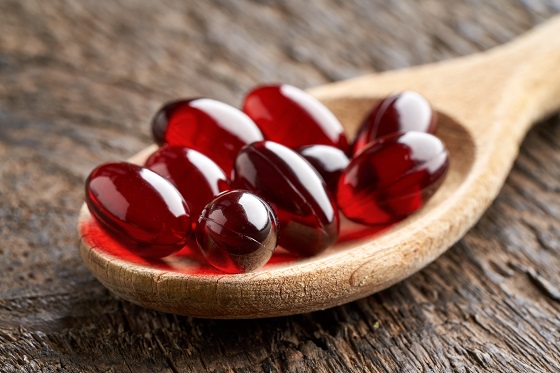In the world of omega-3 supplements, fish oil has long been the go-to choice. But in recent years, krill oil has gained popularity—and for good reason. Not only does it provide essential fatty acids, but it also boasts powerful antioxidant properties that support overall health.
In this blog post, we’ll explore:
✔ What makes krill oil unique?
✔ Its antioxidant benefits
✔ How it supports heart, brain, and joint health
✔ Why it may be superior to fish oil
Let’s dive in!
What is Krill Oil?
Krill are tiny, shrimp-like crustaceans found in the cold waters of the Antarctic. Their oil is rich in:
- Omega-3 fatty acids (EPA & DHA) – Essential for brain and heart health.
- Phospholipids – Enhance absorption compared to fish oil.
- Astaxanthin – A potent antioxidant that gives krill oil its red color.
Unlike fish oil, krill oil’s omega-3s are bound to phospholipids, making them more bioavailable—meaning your body can use them more efficiently.
The Antioxidant Power of Krill Oil
One of the standout features of krill oil is its astaxanthin content. This carotenoid antioxidant is 10x stronger than other antioxidants like vitamin E and beta-carotene.
Key Antioxidant Benefits:
✅ Fights oxidative stress – Protects cells from free radical damage.
✅ Reduces inflammation – Helps lower chronic inflammation linked to diseases.
✅ Supports skin health – May protect against UV damage and improve elasticity.
✅ Boosts brain function – Combats oxidative stress in the brain, potentially reducing cognitive decline.
Because krill oil contains both omega-3s and astaxanthin, it offers a dual-action approach to fighting inflammation and oxidative damage.
Top Health Benefits of Krill Oil
1. Supports Heart Health
- Helps lower triglycerides and improve cholesterol levels.
- May reduce blood pressure and support healthy circulation.
- The anti-inflammatory effects help protect blood vessels.
2. Enhances Brain Function
- Omega-3s (DHA) are crucial for memory and cognitive function.
- Astaxanthin may help protect against neurodegenerative diseases like Alzheimer’s.
3. Reduces Joint Pain & Stiffness
- The anti-inflammatory properties can ease arthritis symptoms.
- Studies suggest krill oil may improve joint mobility better than fish oil.
4. Supports Healthy Skin
- Astaxanthin helps combat skin aging by neutralizing free radicals.
- Omega-3s promote hydration and elasticity, reducing dryness and wrinkles.
5. May Improve Mood & Mental Health
- Omega-3s are linked to lower depression and anxiety levels.
- The anti-inflammatory effects may support neurotransmitter function.
Krill Oil vs. Fish Oil: Which is Better?
While both provide omega-3s, krill oil has some advantages:
✔ Better absorption (thanks to phospholipids).
✔ No fishy aftertaste or burps.
✔ Contains astaxanthin, which fish oil lacks.
✔ More sustainable (krill are abundant and reproduce quickly).
However, fish oil is often more affordable, making it a good alternative for budget-conscious consumers.
How to Take Krill Oil for Maximum Benefits
- Recommended dose: 500–1,000 mg per day (check product labels).
- Best taken with meals for better absorption.
- Look for high-quality, sustainably sourced krill oil (certified by organizations like MSC or Friend of the Sea).

Krill oil is more than just an omega-3 supplement—it’s a powerful antioxidant that supports heart health, brain function, joint mobility, and glowing skin. Thanks to astaxanthin, it offers unique benefits that fish oil can’t match.
If you’re looking for a highly absorbable, inflammation-fighting, and antioxidant-rich supplement, krill oil might be the perfect addition to your wellness routine!
Have you tried krill oil?
Share your experience in the comments!
Disclaimer: This post is for informational purposes only and not medical advice. Consult your healthcare provider before starting any new supplement.

